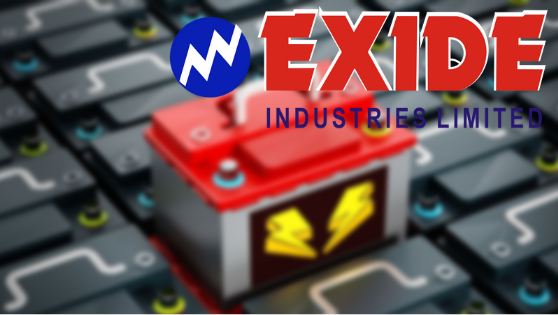Exide Industries, the Indian multinational storage battery manufacturer has put pen to paper and decided to set up a multi-gigawatt lithium-ion cell manufacturing plant. The decision was taken in a board meeting on Tuesday (December 21).
In an exchange filing, the company said, “The board of directors of company at its meeting held today i.e. 21st December 2021 accorded in-principle approval to set up a green field multi-gigawatt Li-ion cell manufacturing facility in India,”
Exide has sensed the changing landscape of batteries in the country. The Kolkata headquartered company is the largest battery manufacturer in the lead-acid battery markets, commanding a market share close to 55 per cent in the organized market.
Up until now, the company had been hesitant to take the plunge into the Lithium battery market. However, with the growing emphasis on EV (Electronic Vehicles) by automobile manufacturers and the government of India, the market became too lucrative for Exide to miss out on.
Read More: India’s EV sector transformation is giving sleepless nights to OPEC
We will use PLI schemes to start the manufacturing process: Exide
Subir Chakraborty, MD & CEO of Exide remarked that the company was looking to utilize the government’s Production Linked Incentive (PLI) Scheme for the liftoff.
He said, “We have now planned to set up a multi-gigawatt lithium-ion cell manufacturing plant and to participate in the Production-Linked Incentive Scheme for Advanced Chemistry Cell manufacturing as proposed by Government of India. Cell manufacturing is an integral part of the Lithium-ion battery manufacturing chain, and we believe that the setting up of this plant will enable us to be more cost-competitive and better serve our esteemed customers,”
As reported by TFI, the government had earlier launched the PLI scheme for Advanced Chemistry Cell worth Rs 18,100 crore and Faster Adaption of Manufacturing of Electric Vehicles worth Rs 10,000 crore).
The inclusion of a PLI scheme of this magnitude, combined with existing schemes like FAME, multiple state subsidies, and the ACC scheme provides a direct financial incentive for the brands and an indirect one in the form of investments that such a scheme is likely to invite. According to the government, it expects the PLI scheme to bring in investments of Rs 42,500 crore.
Read More: A grand EV collaboration between BMW and India’s TVS is a big loss for China
India’s growing need for lithium batteries
As the world moves away from fossil fuels, it is becoming exceedingly clear that the future of the world is with Electric Vehicles (EV). The EV market is powered entirely by lithium-ion batteries (LiBs).
Presently, China manufactures two-thirds of the world’s lithium-ion batteries, and it is also the biggest producer of Graphite – a key raw material for manufacturing LiB anodes. China also has high concentrations of Lithium, but it prefers importing 80 per cent of the white metal so that it can store up to its own reserves for future needs.
Within India, there has been a determined attempt to reduce dependence on China when it comes to Lithium-ion batteries. As early as 2018, Anant Geete, then Union Minister of Heavy Industries and Public Enterprises had announced that India would soon become a manufacturer of Lithium-ion batteries.
Read More: Nitin Gadkari’s excellent plan to turn India into an EV powerhouse
India plans to tap into South America’s ‘Lithium Triangle’ that consists of Chile, Bolivia, and Argentina with the former having the largest reserves. However, having a sustainable home infrastructure is necessary if India wants to foray completely into the ‘clean mobility’ segment.
Lithium-ion battery manufacturing requires huge capital investment and the ability to scale it up on an industrial level. Exide has the prior knowledge but it will take some getting used to the ‘needs of the future’. Meanwhile, it’s another grand news for PM Modi’s ‘Make in India’ and as a corollary, ‘Aatmanirbhar Bharat’ plan.
